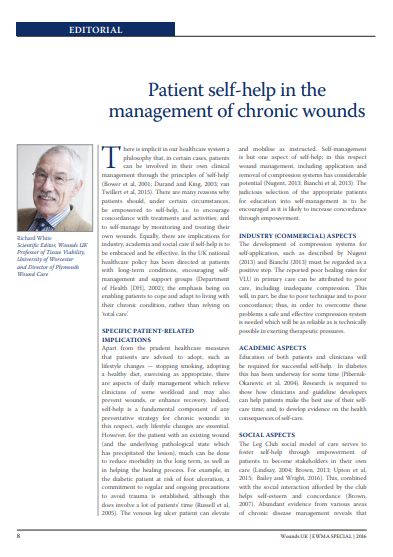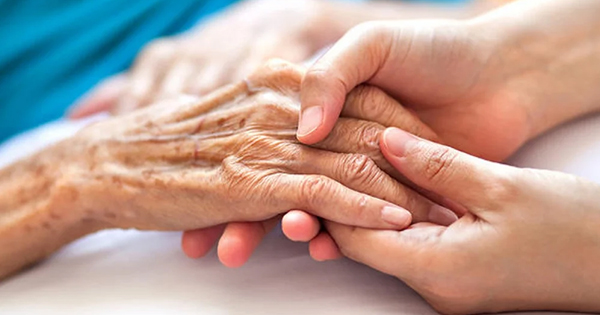There is implicit in our healthcare system a philosophy that, in certain cases, patients can be involved in their own clinical management through the principles of self-help (Bower et al, 2001; Durand and King, 2003; van Twillert et al, 2015). There are many reasons why patients should, under certain circumstances, be empowered to self-help, i.e. to encourage concordance with treatments and activities; and to self-manage by monitoring and treating their own wounds. Equally, there are implications for industry, academia and social care if self-help is to be embraced and be effective. In the UK national healthcare policy has been directed at patients with long-term conditions, encouraging self-management and support groups (Department of Health [DH], 2002); the emphasis being on enabling patients to cope and adapt to living with their chronic condition, rather than relying on total care.







